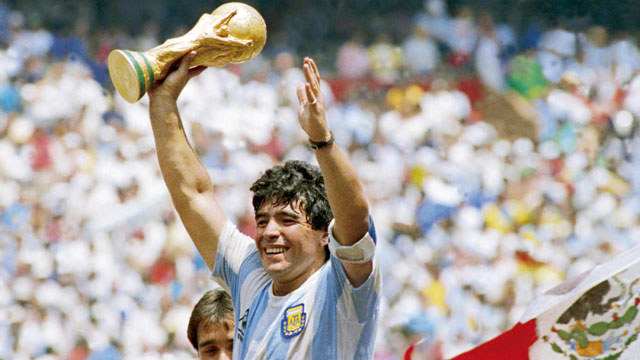
Buenos Aires, Argentina | XINHUA | The news should not have come as a shock. Diego Maradona’s death had seemed to be an imminent event for weeks, and arguably much longer.
Decades of drug and alcohol abuse had reduced the Argentine football legend to a shadow of the man that seemed indestructible during his 1980s pomp.
The precarious state of Maradona’s health escalated earlier this month when doctors in Buenos Aires performed emergency surgery to remove a blood clot on his brain.
Argentina held its collective breath for the country’s biggest sporting idol. He was discharged from the Olivos clinic a week later; out of hospital but not the proverbial woods.
Even with this in mind, the late-morning telephone call from a colleague jolted me.
“Maradona is dead,” he said, as I felt the blood drain from my face and a cold shiver run down my spine.
I was oblivious to much of the ensuing conversation as sepia-tinted memories of a childhood idol flashed through my mind.
Not of the stammering, sickly figure of recent years, but of the unstoppable No. 10 that scored those two iconic goals against England at the 1986 World Cup; the selfless teammate whose supreme vision and deft touch set up Claudio Caniggia’s goal that eliminated Brazil in Italy four years later; the charismatic leader with the steely Che Guevara-esque gaze, captured in a mid-1980s portrait – a framed version of which still adorns a wall in my living room.
Maradona was never one to hide his emotions on a football pitch, whether in times of euphoria, frustration or despair. One of my earliest football memories was seeing him weep disconsolately after Argentina’s loss to West Germany in the 1990 World Cup final.
Perhaps it was his vulnerability, just as much as his footballing genius, that so endeared him to teammates, fans and even opponents.
“I love everything about him,” said Mauricio Pochettino, who was Maradona’s teammate at Newell’s Old Boys in 1994.
“I knew Maradona, the real Maradona. We see him on the pitch and then there is his image. Outside it was crazy. But I promise you, if he arrived here and opened the door we’d all be in love with him. His energy, his personality – and he’s a person that when he’s with you he makes you feel the best.”
In his 1999 single, Maradona, Argentine musician Andres Calamaro described the 1986 World Cup winner as an “angel with wounded wings”.
“It doesn’t matter what mess he gets into, Maradona is my friend and he’s a great person,” Calamaro croons.
Argentina’s current No. 10 Lionel Messi, whose unobtrusive manner and wholesome image stand in stark contrast to Maradona’s personality, said his boyhood hero was “eternal”.
“I’ll remember the beautiful moments we shared together,” the Barcelona forward wrote in a tribute on Instagram.
For all his faults, Maradona touched us all, and maybe that is why no amount of forewarning – clear as it may have been – could have softened the impact of his death.
“I don’t care what you did with your life, I care what you did with mine,” read a giant banner hanging from a Buenos Aires balcony on Wednesday afternoon. That just about sums it up.
*********
XINHUA
 The Independent Uganda: You get the Truth we Pay the Price
The Independent Uganda: You get the Truth we Pay the Price



